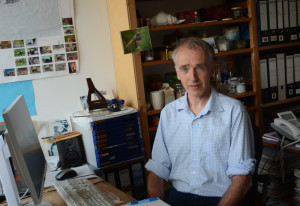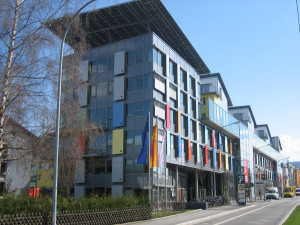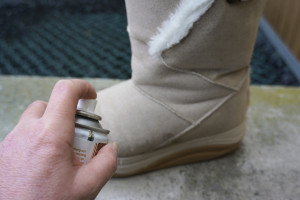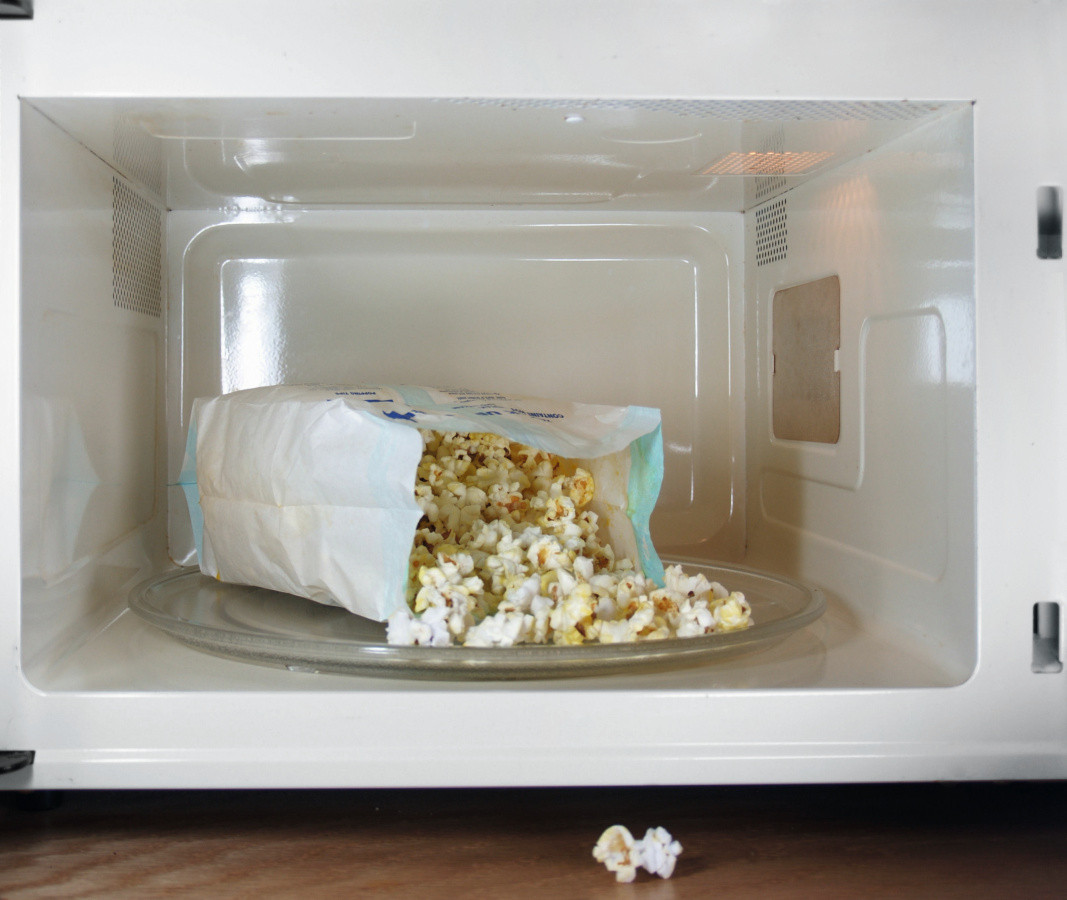What are the social and environmental consequences of e-mobility? How do companies deal with REACh? How can we achieve pesticide-free agriculture? The Öko-Institut is trying to answer these and similar questions.
 Companies are not closing their minds to environmental protection, there is just sometimes too little information, says Prof. Dr. Dirk BunkeThepublic likes to blame phenomena such as environmental pollution, which is somewhat vaguely described as such, on the equally vaguely described industry and accuse it of having malicious intent. Prof. Dr. Dirk Bunke from the Freiburg-based Öko-Institut does not want to let this stand so categorically: "Most companies have good intentions when it comes to substituting critical substances, for example. The only problem is that companies need to know which substances have a harmful effect and how they can be improved. This is where we come in."
Companies are not closing their minds to environmental protection, there is just sometimes too little information, says Prof. Dr. Dirk BunkeThepublic likes to blame phenomena such as environmental pollution, which is somewhat vaguely described as such, on the equally vaguely described industry and accuse it of having malicious intent. Prof. Dr. Dirk Bunke from the Freiburg-based Öko-Institut does not want to let this stand so categorically: "Most companies have good intentions when it comes to substituting critical substances, for example. The only problem is that companies need to know which substances have a harmful effect and how they can be improved. This is where we come in."
"We" is the Öko-Institut with its head office in Freiburg/Breisgau and offices in Darmstadt and Berlin. Bunke is a Senior Reseacher in Freiburg, where he works in the "Products and Material Flows" department. He studied chemistry in Cologne and completed his doctorate in Heidelberg - on Alzheimer's disease and a specific protein that occurs conspicuously often in connection with the disease. He later went to Delft for a year to do a postgraduate course in environmental sciences. It has always been Bunke's dream to work in the field of environmental protection after his studies and his dream has come true with his work at the Öko-Institut. Incidentally, readers of "Galvanotechnik" know the professor as a regular contributor to the "Jahrbuch Oberflächentechnik".
Sociologists and futurologists, among others, sometimes try to identify so-called megatrends for their work, and during his 30 years of work in environmental protection, Bunke has experienced something similar with chemical substances: "In the 1990s it was chlorine, in the early 2000s bromine - and today it is fluorine, among other things, that is the focus of our work," he reports. Fluorine is contained in many products, including everyday products. As an example, he cites waterproofing sprays for leather, which are now also available without fluorine compounds.
 The Öko-Institut building in Freiburg's Merzhauser Strasse. There are also offices in Darmstadt and BerlinTheinstitute does not develop any substitutes itself, but brings together suitable partners. On the one hand, this means the manufacturer of the impregnating agents, and on the other hand a company that has or can develop a suitable substitute but is still looking for users.
The Öko-Institut building in Freiburg's Merzhauser Strasse. There are also offices in Darmstadt and BerlinTheinstitute does not develop any substitutes itself, but brings together suitable partners. On the one hand, this means the manufacturer of the impregnating agents, and on the other hand a company that has or can develop a suitable substitute but is still looking for users.
In order to make this work effective, the institute participates in national and international networks, contributes to their further development and initiates new networks itself. In addition, it seeks strategic partnerships and networking with organizations in order to promote expertise. The Öko-Institut is an independent, non-profit organization. It finances its work primarily through project-related funding from public and private clients. Membership fees and donations make it possible to implement projects that are considered particularly important to society but cannot be fully realized through contracts and grants. The Freiburg-based organization advises entrepreneurs and politicians, and projects by small and medium-sized enterprises in particular are supported by the Federal Environmental Foundation.
The Öko-Institut emerged from the environmental protection movement in 1977 and today has around 170 employees who supervise 300 to 400 projects from many areas every year. These include the mobility of the future, agriculture, renewable raw materials and the climate. With scientific expertise and new approaches, the institute advises partners and clients from politics, authorities and companies. Among other things, it develops application-oriented solutions with which environmental policy goals can be achieved in a socially just manner. The focus is on solutions in areas where changes of course are particularly important and urgent due to existing risks.
 Antifouling layers from ships were the reason why the oyster beds in the North Sea died off years ago
Antifouling layers from ships were the reason why the oyster beds in the North Sea died off years ago
 The Oeko-Institut has succeeded in replacing the fluorine content in impregnation spraysProfessorBunke supervises five to six projects a year in his "Products and Material Flows" department. Specifically, this division of the institute is dedicated to sustainable products and consumption, sustainable chemistry, materials and technologies, sustainable food systems and bio-based raw materials. International cooperation on the circular economy and global value chains is also included. As part of his "REACh radar", the REACh specialist also provides affected parties with information on what they need to look out for in the near future.
The Oeko-Institut has succeeded in replacing the fluorine content in impregnation spraysProfessorBunke supervises five to six projects a year in his "Products and Material Flows" department. Specifically, this division of the institute is dedicated to sustainable products and consumption, sustainable chemistry, materials and technologies, sustainable food systems and bio-based raw materials. International cooperation on the circular economy and global value chains is also included. As part of his "REACh radar", the REACh specialist also provides affected parties with information on what they need to look out for in the near future.
The fact that coatings are often also part of the work of the Freiburg scientists cannot be ignored and Bunke tells the story of the mysterious death of oyster beds in the North Sea. This was a rather gradual process and it was not known why the stocks were declining. Eventually it turned out that the antifouling coating on ships was damaging the reproductive organs of the shellfish to such an extent that they could no longer reproduce. The tributyltin (TBT) contained in the hull coating was specifically responsible. The organotin compound with three butyl groups not only prevents the rotting of boat hulls, but also ensures that no submarine growth settles on the hull, reduces the hull's gliding ability and thus also increases fuel costs. TBT has been banned in the European Union since 2010 and could be substituted.
For non-coastal residents, another coating is closer to home, which was replaced as part of an ecological update by the Coop Group. The aim of the measure was to replace twelve product groups that contain perfluorinated and polyfluorinated alkyl compounds (PFAS). PFAS have no natural source. They are produced industrially and used in a wide range of products. Many PFAS accumulate in the environment and in human and animal tissue. Some PFAS are suspected to be carcinogenic. The total annual health-related costs associated with human exposure to PFAS in the countries of the European Economic Area (EEA) amounted to at least 52 to 84 billion euros. The total annual costs for environmental screening, contamination monitoring, water treatment, soil remediation and health assessment in the EEA plus Switzerland range from €821 million to €170 billion. Historically, the term perfluorinated surfactants and the abbreviation PFT were used for the substances, although these primarily comprised perfluorosulfonic acids (PFSA) and perfluorocarboxylic acids (PFCA) with the two lead substances perfluorooctane sulfonate (PFOS) and perfluorooctanoic acid (PFOA).
 PFAS-containing coatings are used in popcorn packaging, among other things. They are not healthy
PFAS-containing coatings are used in popcorn packaging, among other things. They are not healthy
The Coop Group managed to replace eleven product groups. However, one popcorn packaging proved to be stubborn. Consequently, the Coop managers removed this product from the market. In the end, they succeeded in installing natural cellulose packaging for the popcorn.
Prof. Bunke finds it worrying that many people in this country are concerned about a healthier environment and are making great efforts to protect people and the environment. However, the import of products from non-EU countries that contain ingredients banned in this country would continue to be permitted for many substances. Bunke: "The kindergarten sector should be a role model for all conceivable cases. All substances containing lead are taboo for children's toys, including imported products."


